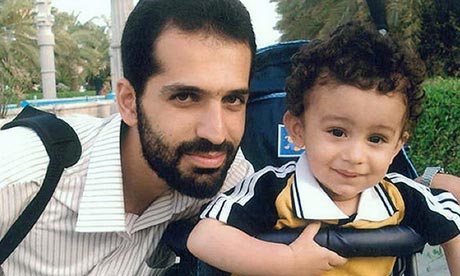 Guardian | Iran's nuclear scientists are not being assassinated. They are being murdered. Killing our enemies abroad is just state-sponsored terror – whatever euphemism western leaders like to use. On the morning of 11 January Mostafa Ahmadi Roshan, the deputy head of Iran's uranium enrichment facility at Natanz, was in his car on his way to work when he was blown up by a magnetic bomb attached to his car door. He was 32 and married with a young son. He wasn't armed, or anywhere near a battlefield.
Guardian | Iran's nuclear scientists are not being assassinated. They are being murdered. Killing our enemies abroad is just state-sponsored terror – whatever euphemism western leaders like to use. On the morning of 11 January Mostafa Ahmadi Roshan, the deputy head of Iran's uranium enrichment facility at Natanz, was in his car on his way to work when he was blown up by a magnetic bomb attached to his car door. He was 32 and married with a young son. He wasn't armed, or anywhere near a battlefield.Since 2010, three other Iranian nuclear scientists have been killed in similar circumstances, including Darioush Rezaeinejad, a 35-year-old electronics expert shot dead outside his daughter's nursery in Tehran last July. But instead of outrage or condemnation, we have been treated to expressions of undisguised glee.
"On occasion, scientists working on the nuclear programme in Iran turn up dead," bragged the Republican nomination candidate Rick Santorum in October. "I think that's a wonderful thing, candidly." On the day of Roshan's death, Israel's military spokesman, Brigadier General Yoav Mordechai, announced on Facebook: "I don't know who settled the score with the Iranian scientist, but I certainly am not shedding a tear" – a sentiment echoed by the historian Michael Burleigh in the Daily Telegraph: "I shall not shed any tears whenever one of these scientists encounters the unforgiving men on motorbikes."
These "men on motorbikes" have been described as "assassins". But assassination is just a more polite word for murder. Indeed, our politicians and their securocrats cloak the premeditated, lawless killing of scientists in Tehran, of civilians in Waziristan, of politicians in Gaza, in an array of euphemisms: not just assassinations but terminations, targeted killings, drone strikes.
Their purpose is to inure us to such state-sponsored violence against foreigners. In his acclaimed book On Killing, the retired US army officer Dave Grossman examines mechanisms that enable us not just to ignore but even cheer such killings: cultural distance ("such as racial and ethnic differences that permit the killer to dehumanise the victim"); moral distance ("the kind of intense belief in moral superiority"); and mechanical distance ("the sterile, Nintendo-game unreality of killing through a TV screen, a thermal sight, a sniper sight or some other kind of mechanical buffer that permits the killer to deny the humanity of his victim").


0 comments:
Post a Comment